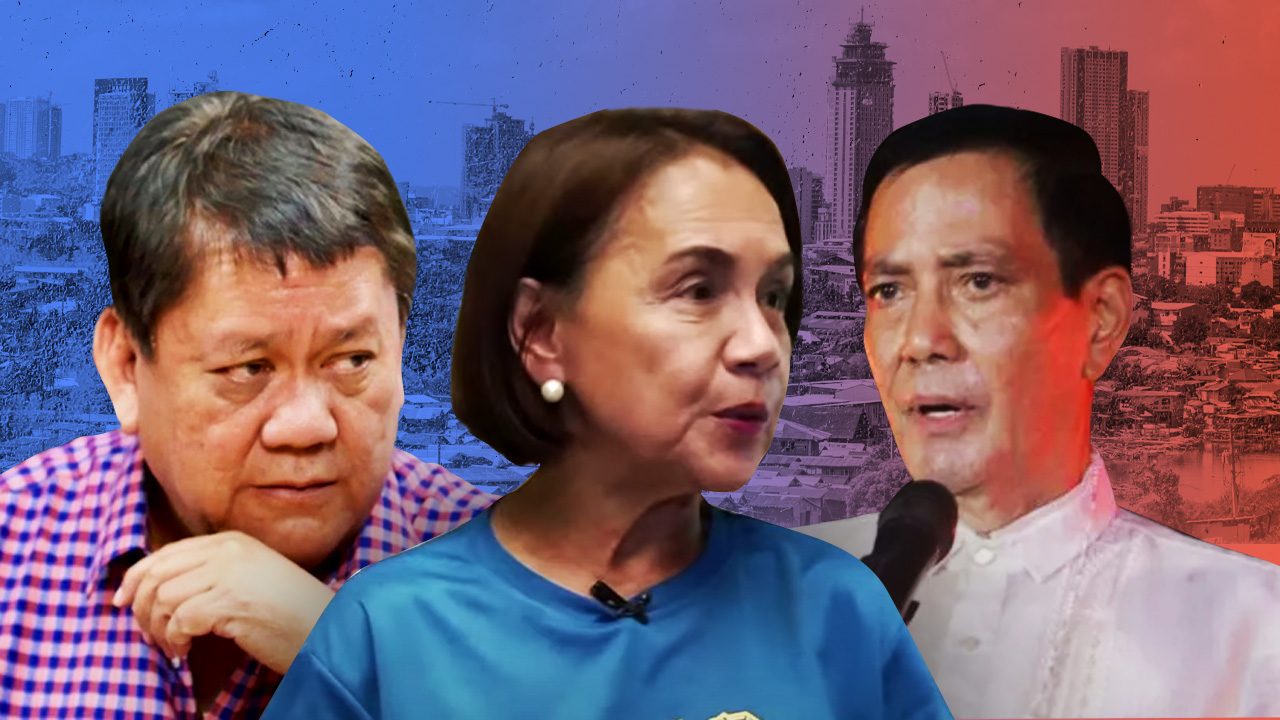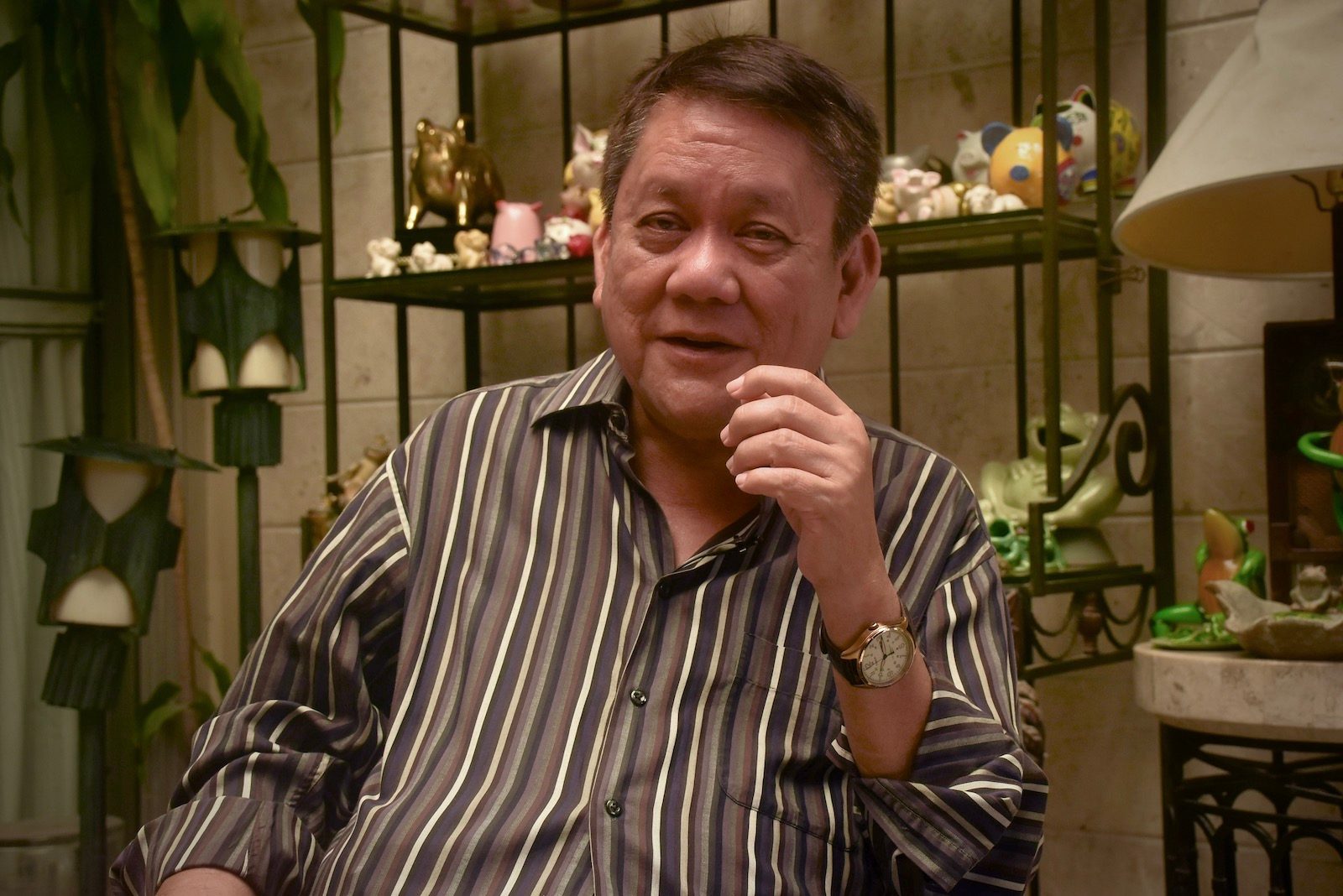SUMMARY
This is AI generated summarization, which may have errors. For context, always refer to the full article.

Editor’s Note: Political dynasties currently occupy 29% of local posts, up from only 19% in 1988. They hold 80% of the country’s gubernatorial posts, compared to only 57% in 2004. In Congress, they now control about 67% of seats from 48% in 2004.
This means that most of our provinces are governed by leaders who come from families or clans that have dominated local politics for years, and the country’s laws which citizens are subjected to are mostly crafted by them.
In this series on political dynasties in 2022, Rappler takes a close look at the persons and families who wield tremendous power and continue to have a firm grip on their respective localities. Their brand of politics and exercise of their political clout influence not only the outcome of local elections, but also the choice of our national leaders.
CEBU CITY, Philippines – Across the country, political elites are all about keeping or expanding power for their growing clans.
Not in Cebu City.
The bitter, decade-long feud between incumbent Mayor Michael “Mike” Rama and former mayor Tommy Osmeña features two dying dynasties.
Rama and Osmeña were former allies. In the 2010 elections, Tommy backed off endorsing his sister, Georgia, to support the re-election bid of Rama, then his vice mayor.
When asked what caused the split, Tommy told Rappler in an interview that it was not even due to any fundamental disagreement on policy or direction.
“He just decided to go on his own,” Osmeña told Rappler.
Prior to the split between Rama and Osmeña, the two had minor disagreements. More than 50 councilors had also signed a manifesto encouraging Tommy to endorse someone else other than Rama in the 2010 election.
But Osmeña still decided to endorse his vice mayor for the city’s highest post because he had pledged it.
Then in 2011, less than two years after getting the coveted endorsement, Rama surprised his former allies, bolting and forming his own “Team Rama.”
“How can I say that I belong to this group (BOPK or Bando Osmeña-Pundok Kauswagan) when they keep on saying that I don’t? I would be a hypocrite to say that I still belong to this group. I am declaring myself independent from BOPK,” Rama explained the split, according to an Inquirer report.
Rama also accused BOPK of being behind complaints that he allegedly mishandled the relocation of urban poor families by Mahiga Creek.
“They cannot fire me, because I quit,” he said in a Cebu Daily News report then.
Rama formed his new bloc by reeling in some of Osmeña’s other rivals and former BOPK members. This included the Kusug party of the Garcia clan, then led by Raymond Garcia, the son of former Cebu City mayor Alvin Garcia.
Alvin is a cousin of Governor Gwen Garcia.
From BOPK, Rama brought with him the late Cebu City mayor Edgar Labella, then a councilor, and nephew Eduardo Rama Jr.
Rappler tried to interview Rama for this story, but although he agreed to an interview, after at least five calls and text exchanges with him and his staff, he still has not confirmed a final time for it.
Rama’s move gave him the status of a genuine rival to the Osmeñas. Local politicians began lining up behind the two dominant political blocs in the city.
Rama won the 2013 midterm election as mayor, with Labella as vice mayor.
Pattern

Governing as mayor was not easy for Rama.
In two of the past three elections, Cebu City voters have split their votes: whoever they elected as mayor faced an opposition council majority.
When Rama won in 2013, BOPK held 12 of the 16 council seats. When Osmeña defeated Rama in 2016, Team Rama won 10 of the 16 seats.
It was only in 2019, when Team Rama rebranded as Partido Barug that the slate tied with BOPK, bagging eight of the 16 council seats.
This 2022, it’s Rama versus Osmeña once again. This time, Tommy’s wife Margot, a former city councilor, is running for mayor for the first time.
Tommy initially filed his candidacy as representative for Cebu City’s 2nd District (South District) in October 2021 but later withdrew. Although he is not running for any position this time, Tommy has been a constant presence in Cebu City politics – whether through his allies in city councils or barangay captains who are still loyal to BOPK.
Political history
First-time mayoral bet Margot is running with a name that every Cebuano knows – and for the most part – still respects.
Tommy is the grandson of former president Sergio Osmeña. Tommy’s father, Sergio “Serging” Osmeña Jr., was a former governor, senator, and mayor of Cebu City.
Serging Jr. also challenged former dictator Ferdinand Marcos for the presidency in 1969 but lost.
During the dictatorship of Marcos, Tommy’s brother, former senator Sergio “Serge” Osmeña III was arrested by the regime. The rest of the family was exiled until 1987, when the dictator was overthrown during the People Power revolution.
Tommy won his first term as mayor in 1988 but stepped down in 1995, before running again in 2001, serving three consecutive terms until 2010. He had served a total of 19 of the past 33 years as mayor of Cebu City.
Rama also comes from an illustrious line of Cebuano politicians. Vicente Rama, said to be the father of Cebu City, was city mayor and senator, and among the pioneers of Cebuano journalism. One of Vicente’s children, Osmundo and uncle to Mike Rama, was former governor of the province.
Strongman of Cebu

While Tommy was a nationally recognizable opposition figure against the administration of President Rodrigo Duterte in the tense lead-up to the 2019 election, he was branded as a strongman like Duterte himself during his earlier terms as mayor.
Tommy was known to carry a pistol and would work closely with the police in its anti-drug operations.
Before the former Cebu City mayor and Duterte had a falling out in 2018, Tommy once considered the Davao mayor his “friend.”
When Human Rights Watch (HRW) published its 2009 report – bringing global focus on summary executions of suspected criminals in Davao City – it included Cebu City under Osmeña. During his watch, Cebu City saw 202 vigilante-style killings.
Osmeña denied responsibility for the killings but admitted that he might have inspired the vigilantes: “I will say I inspired it. I don’t deny that.”
Also, Osmeña brought back his incentives for cops who killed top drug lords in Cebu when he won a term as mayor in 2016.
This was modeled after his “hunters team” anti-drug operations, which he spearheaded in the mid-2000s.
Osmeña was active and popular on social media – he even opened up the public library 24/7 after a request from a constituent was made via a Facebook post in 2018.
Flash point

Margot is no slouch in throwing barbs.
On Rama’s split from BOPK in 2012, she said, “You know, there’s one thing I can say. You know, in the BOPK family…you don’t get kicked out, you leave. They leave.”
After the split, Tommy would often trade barbs with Rama through the media and would criticize how his administration managed the city.
But the main flash point for Osmeña was the city-owned South Road Properties (SRP).
The SRP, which started development in the early 2000s, is one of the city’s three main business districts aside from the IT Park in Barangay Lahug and the Cebu Business Park in Barangay Luz.
The Osmeñas and their allies see the project as something that should be carefully managed for the long-term benefit of Cebu.
Those allied with Rama, on the other hand, tend to see it as a quick way to source revenue for the city’s programs. At least P2.19 billion of the city’s P10-billion 2021 budget was sourced from this project alone.
In 2016, when Osmeña returned as mayor, he took measures to retrieve properties of the SRP that he believed were sold by Rama for under-market value.
After he left office in 2019, Tommy took Rama to court over his management of the city’s cash cow.
Dying dynasties
This election, Margot and her daughter-in-law Bea Osmeña are the only ones from the dynasty running for local office.
Tommy’s cousins John Henry “Sonny” and Lito Osmeña died in 2021. Sonny was a former senator, mayor of Cebu City and Toledo City, while Lito was a former governor.
None of their children are running for office in Cebu.
On Rama’s side, his son Mikel is a practicing lawyer. Although he said he is open to joining politics, it is not his priority right now. His daughter Micheline is an activist and has worked for several non-governmental organizations since 2013 and has no plans of joining politics.
Rama recently married a former city hall employee Malou Jimenez Mandanat, 32, in October 2021. They have a one-year-old son together.
But is Margot’s bid for mayor in 2022 an attempt to save the dying dynasty?
Margot understands why people would presume that this election is about preserving power for the Osmeñas.
“Osmena again? I can understand. And do I have to go out of my way to prove? I will not go out of my way. But hopefully they see beyond that,” Margot said.
Margot is more focused on protecting Cebu from what she sees as the continuous mismanagement of the city by the current administration.
“Politics is not my life. I have a life. And I do have a full life and I’m blessed to be able to say that,” Margot said. “I have chosen to walk this path now, and I will walk. But I would like to think that the politics that I will practice, it will not define me. I will define what I am, what I will practice. Whatever that is, you’ll see.” – Rappler.com
Read the other stories in our Political Dynasties 2022 series:
Luzon
- Political Dynasties 2022: Amid controversies, Pinedas of Pampanga expand reach
- Political dynasties 2022: Espinos still lynchpin of Pangasinan politics
- Political Dynasties 2022: Pangasinan clans in high stakes 2022 brawl
- Political Dynasties 2022: Fariñas clan foil to Marcos power in Ilocos Norte
- Political Dynasties 2022: Revillas now the largest in Cavite
Visayas
- Political Dynasties 2022: Evardones reach Eastern Samar summit
- Political families crowd Eastern Samar candidates’ list
- Political Dynasties 2022: Garin patriarch of Iloilo hard act to follow
- Political Dynasties 2022: Benitez clan guns for Bacolod City
- Negros Occidental big clans offer ‘soft’ support for Marcos
Mindanao
- Political Dynasties 2022: Zubiris rule Bukidnon after Fortich
- Political Dynasties 2022: Clashing families spring from Dongkoy Emano
- Political Dynasties 2022: Dongkoy Emano morphs into kingpin after EDSA revolt
- Political Dynasties 2022: Two families dominate Zamboanga Sibugay politics
Related content:
Add a comment
How does this make you feel?










![[New School] Tama na kayo](https://www.rappler.com/tachyon/2024/02/new-school-tama-na-kayo-feb-6-2024.jpg?resize=257%2C257&crop=290px%2C0px%2C720px%2C720px)









There are no comments yet. Add your comment to start the conversation.